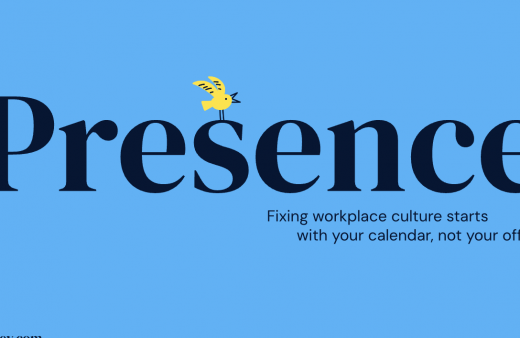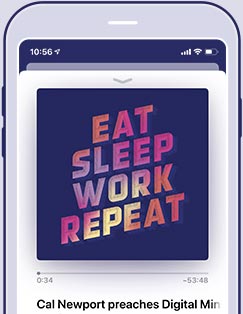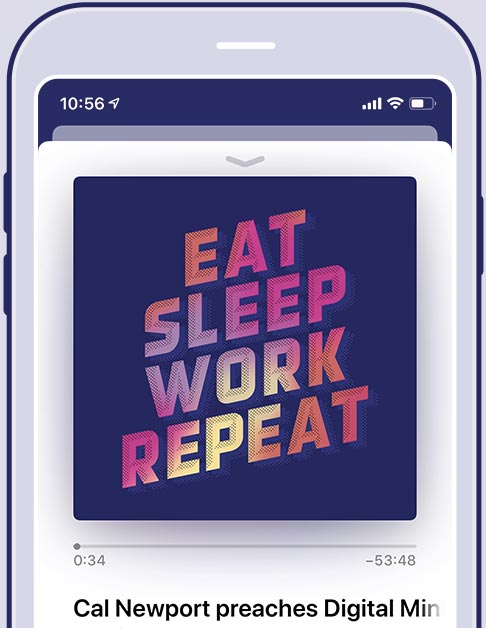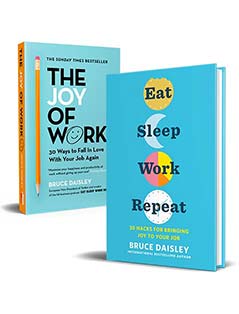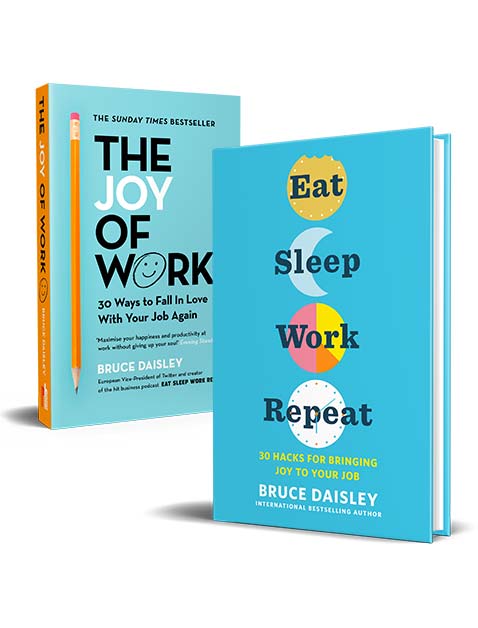Lean In – 3 Perspectives
Sheryl Sandberg’s Lean In is the best selling book about work culture for the last 5 years. We talk to three women to get their view on the book – and of feminism in the world place.
Dawn Foster is a Guardian journalist and the writer of Lean Out.
Melissa Barnes leads Twitter’s relations with the biggest brands in the world.
Sue Todd is the CEO of Magnetic.
Transcript of Dawn Foster:
I was fascinated with your book and I adored it. It’s an obvious counterpoint to the Sheryl book so I just wondered if it was worth starting with you giving your take of Leaning In and then why you took issue with that.
DAWN FOSTER: I’d heard of the book a little bit but I first it came into proper contact with it when an old flat mate of mine came home with the book. She explained that she was working in tech company. She was quite senior. But she felt really really ostracised and she felt quite bullied believed by a lot of her junior male colleagues. She started a women’s group with a couple of other women who felt the same. The first they held it she booked a room for 10 and about 30 people showed up. The second time they booked for 30 and about 60 people showed up. It grew and grew and grew because there was obviously a really big problem in this huge company. When it came to one of the later sessions, one of the senior men walked in with a box full of copies of Lean In and said ‘I think girls, if you just read this then it will solve all your problems. You won’t need to have these little groups. I had a read of it. And essentially all it said to women was not ‘stand together, fight for rights’ etc. It focussed very very much on the individual and it told the individual that feminism’s goals could be won just by individual women changing their attitudes and behaviours. So it seemed to essentially be saying that the reason why there were so few women at the top is because only a few of these women – like Sheryl Sandberg – know precisely how to behave. And it completely kind of abdicated kind of structures and work culture and any responsibility. It didn’t say that the reason why women struggle to get to the top is because we have structures that mean that men has afforded job more easily, that when when we have children women are expected to pick up the brunt of the childcare or anything like that. It all focussed completely inwardly. I thought that was not true. I know loads of women who have worked unbelievably hard and would never manage to get the same status as their husbands. But also I thought it was so damaging to say that that any form of liberation – black liberation, gay liberation, women’s liberation was purely the fault of women and black men, gay people etc.. So I found it really damaging. I thought we need to look more at actual structures and look at wider society and that the answers don’t just come from within.
You articulate that really well. The fact that it’s almost ‘I’m handing you this book, because you guys need to solve this’.
DAWN FOSTER: Yes. I feel in many ways it is a business self-help book. I’ve spoken to a lot of people who read my book. They said that when they read Lean In they initially enjoyed it, they tried some things out in work and they said that it didn’t actually change their work very much. It didn’t actually manage to alter their position. It just made them think more about how they could slot in better. And a lot of them said that actually what they wanted to do was to push against the grain and to say to their bosses or their colleagues ‘this isn’t working for us, how can we make something that works for everyone?’ Whereas instead of Lean In focusses very much on what you do individually – the outcomes of which should be not 50 50 representation on boards, 50 50 representation in politics but instead what you as an individual can get out of it. So whether or not you at the end of the year have a pay rise whether or not you come back from maternity leave and things like that.
Because I don’t know whether it was an interview with you or in the book you describe a situation in a meeting that you observed where a man was talking over everyone. And you said the Lean In solution was that you would carry on talking. And probably a more complete and progressive a solution is everyone says this ‘isn’t an appropriate way to run a meeting if we’re going to get everyone heard.
DAWN FOSTER: Yeah and I’ve had lots of meetings where that’s happened. Either you follow the Lean In route where Sheryl Sandberg’s answer is to put your hand up. She says the reason men talk so much in meetings is because women don’t put themselves forward. Whereas what me and most of my friends and colleagues see is women start speaking and are immediately spoken over. I’ve had meetings where somebody noticed that and one of the senior people picked up a stress ball and said ‘you only talk if you have this in your hand. We only really needed it for three meetings, and after that everybody thought more about when they were allowed to talk. And it meant it was a lot more democratic. Initiatlly somebody said ‘we’ll end up with somebody hogging it’ and that didn’t happen at all instead somebody would put their hands out saying ‘can I have the stress ball?’ It was passed around etc.
Did the stressball disappear after?
DAWN FOSTER: It did. Somebody forgot to bring it one day and the meeting was fine. But it basically meant that instead of saying to individuals ‘you must get your voice heard’. We instead looked back and said ‘how can we make sure that everybody does get heard?’ How could we stop people from talking over each other. There was this really interesting article I think it was in New York Times recently where they talked about how Obama’s female staff realised that they were the spoken over constantly in meetings. Rather than each of them individually going in full guns and to try shout over everybody else what they started doing was backing up each other’s points. So as soon as one woman spoke another woman said ‘yes I really agree with Karen’s point here, Karen’s point is very good’. So it is very common in meetings for you to say something and somebody to take your idea and claim it as their own. So the women secretly decided to back up each other’s ideas, follow on from each other. If one woman was talking another woman would start talking just as she was finishing. They said it was a really fascinating way of amplifying each others’ voices, and secretly going against the grain. And it wasn’t about the individual. It’s about supporting everybody in that in that meeting.
I guess the fundamental thing of both of those things is that it suggests you’ve got a broken system and you’re making amends to try and fix it. Rather than fixing it by changing that patriarchal construction, you’re trying to change it in a gradual incremental way at the bottom. You mentioned women on boards. I got the sense it’s quite tokenistic . Women who go on to boards are often people who aren’t going to create trouble.
DAWN FOSTER: I’ve got a lot of friends who live in Scandinavia especially in Sweden, Norway. I go there quite a bit. And it’s very handy for me to get them to translate things for me. In Norway and Sweden they’ve had a really big push to get women on boards. Now they call them Golden Skirts. So it’s women at the top who have very senior positions on these boards. What they actually found was it didn’t change the culture of the company whatsoever. Most of the women there were of the same kind of background you’d expect the men to be. So they knew people from golf clubs, they knew people from private country clubs that most people didn’t have access to. Often the women were appointed knowing that those women in particular wouldn’t be particularly likely to upset the apple cart or anything like that. They came in and they knew that their job was to rubber stamp rather than change culture etc..
Just before the election last year Vince Cable who worked in the Business Department in the government made a big thing about getting more women on boards. You can do that or you can instead look at how to actually change everything from the bottom up. For most women having a couple more women on the board of J.P. Morgan does much less to improve their life than looking at what it is that J.P Morgan does in a capitalist sense that actually materially disadvantages thousands of women.
There’s a couple of things that I wanted to talk about that was really fascinating. The first was this sort of 21st century phenomenon of companies offering to freeze women’s eggs. It’s this extraordinary concept, I think the first time anyone hears it’s unheard of. Ones first instinct is probably to wonder if that’s incredibly progressive. You make a point about it actually establishing a norm which doesn’t feel quite right.
DAWN FOSTER: Yeah definitely. When I first heard about it I was really baffled. I’ve read a lot of into it now and I’ve spoken to a few women in the U.S. who got in touch via email saying their companies offered it. It’s a slightly misguided way of trying to help. You can tell that it comes from a very Bro Culture etc. It says a number of things. One thing it says is that if you join a company then you should expect not to have children for a long time. To put it off for as long as possible for the sake of your job for the company etc. If a woman does go in to a company that offers egg freezing, doesn’t take it up, gets pregnant then for most of her colleagues then the message is that she isn’t as invested in the job as other women who might freeze their eggs, try to put off having children etc. It is a very invasive procedure. Women have to take time out. They have to go under anaesthetic, it’s quite painful. There are risks involved, including to fertility. It is very different to freezing a sperm sample somewhere. You have to go in hospital multiple times, you have to take hormones, you have to have an operation etc. Also the longer you put off having children scientifically the less likely you are to have them. So it still puts out a message that women’s biology is a problem. Women’s biology is inconvenient to business and instead of saying ‘why don’t we give you free childcare? Why don’t we let you work from home some days if that makes your life easier? And you can continue to have kids and be here’. Instead the idea is that you put off fertility because women inconvenience business by having children. Because of course women do it entirely on their own and men aren’t involved in any point in the procedure!!
Here’s another one I’m interested your take on. You say you just got back from the Labour Party conference. Jeremy Corbyn was in the news a couple of weeks ago with his comments about after-work drinking. To a British ear it’s one of those things that you hadn’t even considered. Drinking is such part of our societal establishment. Jeremy Corbyn said that after-work drinks should be banned because effectively they created a subgroup within a company.
DAWN FOSTER: Yeah. I’m not sure he did think they should be banned. I think he should be discouraged as a form of networking. I found the outcry very strange because it’s something that feminists have said for a long time. I meet a lot of women who have children and they say that one thing that they find very difficult when they have children and come back to work is that when they have to leave at a certain time to go and collect their children they feel excluded from anything that goes on afterwards. If you work in a newspaper office and the issue needs to be out later than normal then you leave and you feel as if everybody resents you. I worked in Canary Wharf for a while. There was a magazine in Canary Wharf surrounded by financial institutions. If you ever went for a drink afterwards all you saw were people in suits all sat together with people from their office. It was almost entirely men. When you walked in in the morning I’d say it was about 40 percent women 60 percent men but most of the women had disappeared by the end of it. I was quite surprised by the backlash against this because that’s one of things about being a woman, having children. Once you need to be at home in the evening you’re cut off from those networking opportunities. You can’t go to evening talks, you can’t go to parties and that sort of thing. It was a very good point but obviously it came with a huge backlash. I feel as though pretty much anything Jeremy Corbyn could say at this point would come with a backlash. So when Momentum Kids was announced – which involves creches for children while parents were at political meetings people compared it to Hitler Youth. My older friends said that when they were involved in Women’s Liberation in the 80s nearly every meeting had a creche. It seemed perfectly normal whereas now it seems to be going backwards. People seem not to want to talk about exactly how work and family can stop you getting involved in things.
Yeah. I thought was particularly fascinating because it was one of those things where you’ve just not seen politics normally go, you’ve not seeing political debate go into the areas like that. You can’t imagine someone who’s desperate to be populist picking it as an easy topic. We’re so used to politicians picking subjects and themes that are straight down the middle. That was having a disagreement with the world around.
DAWN FOSTER: Yeah I think that’s the issue with politics, I think for quite a long time everybody tried to stay in the centre. There are so few policies that can please everybody, at some point you have to decide exactly who you are who your electorate should be and who you want to go for. And then you do end up ruffling some feathers.
I find the egg freezing one so bizarre.
DAWN FOSTER: When I when I’ve spoken to women about it a lot of them say that they feel very pressured into it. Technically there should be a confidentiality about whether or not you go for it. They say they realise that if they get pregnant, whether or not they’ve frozen their eggs somebody’s going to turn around and say ‘we do have this big project need to get off the off base in 10 months. Didn’t you think about that what you got pregnant etc?’
It’s back to: the responsibility’s transferred from the system, from society, onto the woman. ‘Why aren’t you putting your hand up? Why aren’t you saving your eggs? Why aren’t you being a better team member?’
DAWN FOSTER: Yeah. It’s such a change to somebody’s life as well. Having a child in your forties. Say you have a child at 48 and then you end up being 65 when the child goes up to college. Or having a child when you’re 32 and then being close to 50. It has a big impact on your life. The older you have children the less likely you are to have friends who also have children. And it just seems like such a big ask for companies to believe that they are so important that they should have the power to completely alter somebody’s life and not just on a day to day basis but in a long term basis. I mean I can’t imagine a company coming out and telling people not to get married or like offering them a bung to wait until they are 45 to get married. But when it comes to female biology it’s completely different.
That’s exactly fair isn’t it exactly. A fair parallel. ‘Guys don’t get married, we’re going to give you an extra bonus if you don’t get married’.
DAWN FOSTER: And there was this big backlash, this company in Bristol said they had been talking to staff members etc. and they wanted to offer period leave. If women had bad period pain etc they could take some days off every month just to work from home, we’ll deal with it. It was incredible the backlash against it. There were quite a few women I knew said that would endear them to a company more. If they knew that the company were more sensitive to everyday life. If you go to a company that lets you have days off for your period chances are they won’t be too upset if you need a day off because your child is sick or something like that. But other people came out and said it was nannying and that people should just ‘woman up’. It seems that people had a big problem with any company trying to make life more comfortable. It’s seen as if the only way it should be thought about was how companies would change lives to make employees work better for them.





